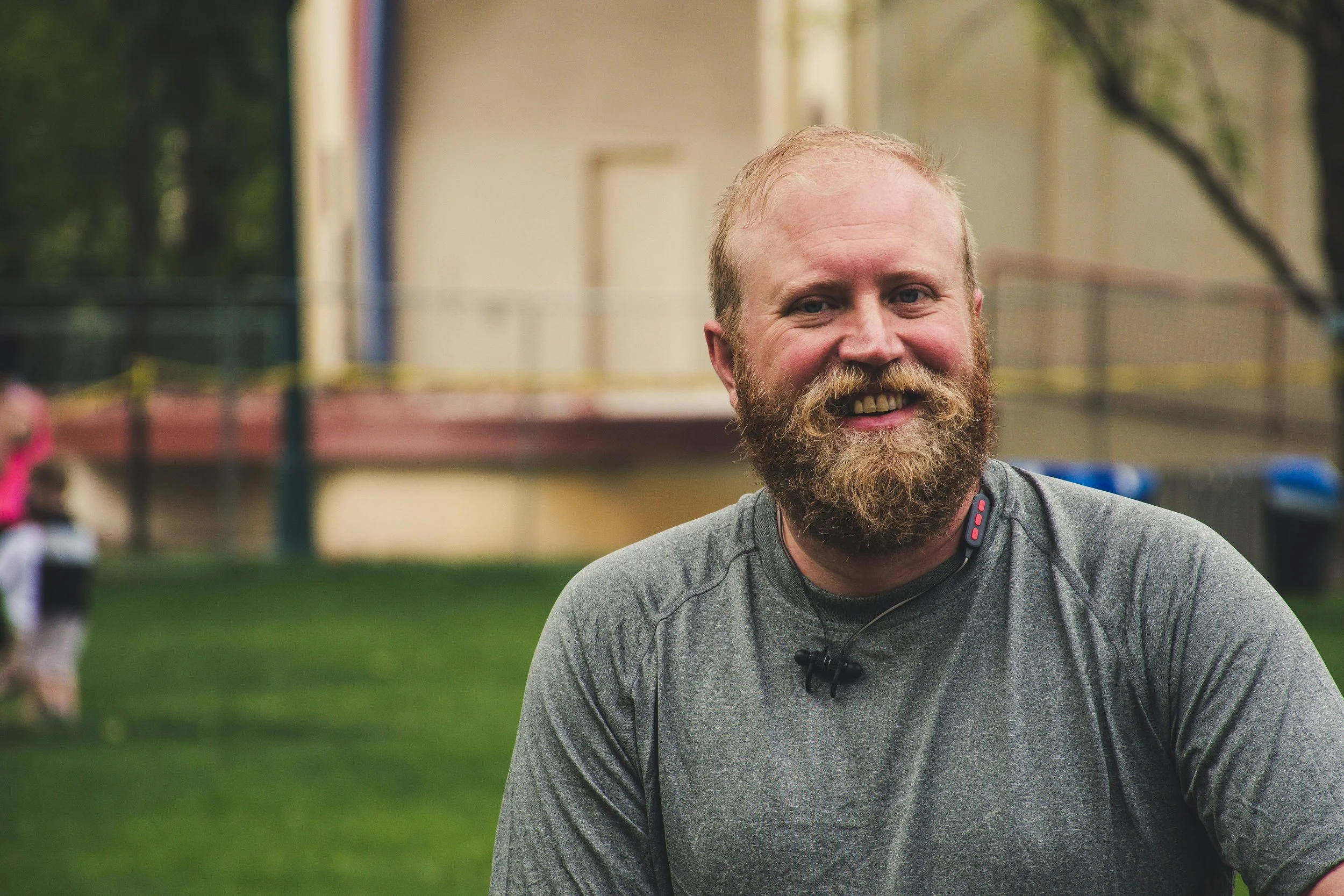Breaking Free from OCD: Understanding Obsessive-Compulsive Disorder and the Path to Recovery
When Your Mind Feels Like a Prison: A Personal Understanding
If you're reading this, you might be trapped in a cycle that feels impossible to break. Maybe you're washing your hands for the twentieth time today, or you've checked the door lock so many times that you're late for work—again. Perhaps you're searching "therapy Philadelphia" because you're finally ready to admit that what you're experiencing isn't just being "careful" or "organized"—it's something much more consuming that's taking over your life.
Living with Obsessive-Compulsive Disorder (OCD) can feel like being held hostage by your own mind. The intrusive thoughts arrive uninvited, demanding attention with an urgency that feels life-or-death. Your brain whispers that something terrible will happen if you don't perform that ritual, check one more time, or arrange things in exactly the right way. And so you comply, hoping for relief, only to find that the peace is temporary and the cycle begins again, often more intensely than before.
You're not alone in this struggle, and what you're experiencing has a name, an explanation, and most importantly, effective OCD therapy approaches that can help you reclaim your life. OCD affects approximately 2-3% of the population, touching people from all backgrounds, ages, and walks of life. It's not about being neat or particular—it's a genuine neurological condition that creates a specific pattern of intrusive thoughts (obsessions) followed by repetitive behaviors or mental acts (compulsions) designed to reduce the anxiety those thoughts create.
The shame and secrecy that often surround OCD can make it feel even more isolating. You might worry that others will think you're "crazy" or that you'll be judged for behaviors that feel completely irrational but absolutely necessary. This is precisely why specialized OCD therapy is so crucial—it provides a safe, understanding environment where these experiences are not only normalized but addressed with evidence-based techniques that have helped countless individuals break free from OCD's grip.
What makes OCD therapy different from general counseling is its specific focus on understanding the unique ways OCD operates and the specialized interventions that have been proven most effective. Unlike other anxiety conditions, OCD requires therapists who understand its particular mechanisms and can guide you through the counterintuitive process of learning to tolerate uncertainty and resist compulsions—skills that become the foundation of lasting recovery.
“It’s not that I want to think these thoughts. It’s that I can’t stop thinking them. And the only way to make them stop is to do the thing, even though I know the thing won’t actually help.”
Awakenly Therapy's Comprehensive Approach to OCD Recovery
At Awakenly Therapy, we understand that effective OCD therapy requires more than a one-size-fits-all approach. Our experienced therapists specialize in treating OCD using an integrated model that combines the most effective evidence-based treatments while honoring the unique presentation of each individual's symptoms and circumstances.
Our OCD treatment approach begins with comprehensive assessment to understand the specific nature of your obsessions and compulsions, their triggers, and how they impact your daily functioning. We believe that understanding the full picture of your experience is essential for developing a personalized treatment plan that addresses not just symptoms, but the underlying patterns that maintain them.
Central to our OCD therapy is the integration of Exposure and Response Prevention (ERP) techniques delivered with compassion and at a pace that feels manageable. Our therapists work collaboratively with you to develop a hierarchy of exposures, starting with less anxiety-provoking situations and gradually working toward more challenging ones. This graduated approach ensures that you build confidence and skills while making steady progress toward your recovery goals.
We also incorporate Cognitive Behavioral Therapy (CBT) techniques to help you identify and challenge the thought patterns that fuel OCD symptoms. Through CBT, you'll learn to recognize cognitive distortions like catastrophic thinking, overestimation of threat, and excessive responsibility, developing more balanced and realistic ways of interpreting obsessive thoughts.
Our integration of Dialectical Behavior Therapy (DBT) skills provides additional tools for managing the intense emotions that often accompany OCD. You'll learn distress tolerance techniques for managing anxiety without resorting to compulsions, emotion regulation skills for maintaining stability during challenging exposure exercises, and mindfulness practices that help create space between thoughts and reactions.
Perhaps most uniquely, our OCD treatment incorporates somatic and psychodynamic approaches that recognize OCD as an experience that affects the whole person—mind, body, and spirit. Our somatic techniques help you develop awareness of how OCD manifests in your body and learn to release physical tension and activation that often accompanies obsessive thoughts. This body-based awareness can be particularly helpful for individuals whose OCD involves sensory obsessions or who experience significant physical anxiety symptoms.
Our psychodynamic approach explores the deeper psychological factors that may contribute to OCD symptoms, including early relationships, attachment patterns, and unconscious conflicts. While not everyone needs or benefits from this level of exploration, many individuals find that understanding the psychological soil in which their OCD grew provides valuable insights and supports lasting recovery.
Hope, Healing, and the Journey Forward
Recovery from OCD is not only possible—it's probable with the right OCD therapy approach. Research shows that approximately 70-80% of individuals who complete a full course of evidence-based OCD treatment experience significant symptom reduction, with many achieving substantial improvement in their quality of life and daily functioning.
The journey through OCD therapy requires courage, patience, and commitment. There will be challenging moments when facing your fears feels overwhelming, and setbacks are a normal part of the recovery process. What matters is having skilled therapists who understand OCD's unique challenges and can guide you through both the difficulties and the victories with expertise and compassion.
If you're searching for "therapy Philadelphia" or "counseling Philadelphia" because you're ready to break free from OCD's control over your life, know that reaching out for help is an act of strength and self-compassion. At Awakenly Therapy, our team of specialized therapists is ready to walk alongside you on this journey, providing the evidence-based OCD therapy and holistic support you need to reclaim your life from obsessive-compulsive disorder.
Remember: OCD may be a part of your experience, but it doesn't define who you are. With the right treatment and support, you can learn to manage your symptoms, pursue your values and goals, and live a rich, meaningful life beyond the constraints of obsessive thoughts and compulsive behaviors. Your recovery story is waiting to be written, and we're here to help you write it.
“The thing about a spiral is, if you follow it inward, it never actually ends. It just keeps tightening, infinitely.”
The Neuroscience Behind OCD: What's Really Happening in Your Brain
Understanding OCD from a scientific perspective can be both validating and empowering. Research has shown that OCD involves specific differences in brain circuits, particularly those connecting the orbitofrontal cortex, anterior cingulate cortex, and caudate nucleus. These areas are responsible for error detection, impulse control, and the ability to "turn off" repetitive thoughts and behaviors. In people with OCD, these circuits become hyperactive, creating a neurological "stuck switch" that makes it difficult to dismiss intrusive thoughts or stop repetitive behaviors.
This neurobiological understanding is crucial for effective OCD treatment because it helps both clients and therapists recognize that OCD symptoms aren't character flaws or signs of weakness—they're the result of a brain that's working differently. Neuroimaging studies have consistently shown that successful OCD therapy actually changes brain function, normalizing activity in these hyperactive circuits and providing measurable evidence of healing at the neurological level.
The role of neurotransmitters, particularly serotonin, has also been well-established in OCD research. This is why selective serotonin reuptake inhibitors (SSRIs) can be helpful as part of comprehensive OCD treatment, often working synergistically with psychotherapy to provide optimal outcomes. However, research consistently shows that psychotherapy approaches, particularly Exposure and Response Prevention (ERP), tend to have longer-lasting effects than medication alone.
Recent advances in OCD research have also revealed the importance of genetic factors, with studies showing that OCD tends to run in families and that certain genetic variations may influence both vulnerability to developing the condition and response to different types of OCD treatment. This growing understanding of OCD's biological basis continues to reduce stigma and improve treatment approaches.
The concept of neuroplasticity—the brain's ability to form new neural pathways throughout life—provides hope and scientific backing for recovery. OCD therapy essentially helps the brain develop new, healthier response patterns to obsessive thoughts, gradually weakening the old neural pathways that maintained compulsive behaviors. This process takes time and practice, but the changes are real and measurable.
Evidence-Based Approaches: The Gold Standard in OCD Treatment
The research on OCD therapy is extensive and encouraging. Meta-analyses of numerous clinical trials consistently demonstrate that Cognitive Behavioral Therapy (CBT), particularly when it includes Exposure and Response Prevention (ERP), is the most effective psychological OCD treatment available. ERP works by gradually exposing individuals to their obsessive fears while helping them resist the urge to perform compulsions, allowing the anxiety to naturally decrease over time.
What makes ERP so effective in OCD therapy is its direct approach to breaking the cycle that maintains OCD symptoms. By learning to tolerate the discomfort of obsessive thoughts without performing compulsions, individuals discover that their worst fears don't actually materialize, and their anxiety naturally decreases. This process, called habituation, helps retrain the brain's alarm system to respond more appropriately to perceived threats.
Cognitive therapy components of OCD treatment focus on identifying and challenging the distorted thought patterns that fuel OCD, such as inflated responsibility, intolerance of uncertainty, and overestimation of threat. By learning to recognize these cognitive biases and develop more balanced thinking patterns, individuals can reduce the power that obsessive thoughts hold over their lives.
Acceptance and Commitment Therapy (ACT) has emerged as another valuable approach in OCD therapy, teaching individuals to change their relationship with obsessive thoughts rather than trying to eliminate them entirely. ACT helps people recognize that thoughts are just thoughts—not facts or commands—and learn to pursue meaningful activities even when experiencing obsessive content.
The integration of Dialectical Behavior Therapy (DBT) skills into OCD treatment has shown particular promise for individuals who struggle with emotional regulation alongside their OCD symptoms. DBT's distress tolerance skills provide practical tools for managing the intense emotions that often accompany obsessive thoughts, while its mindfulness techniques help create space between thoughts and reactions.



